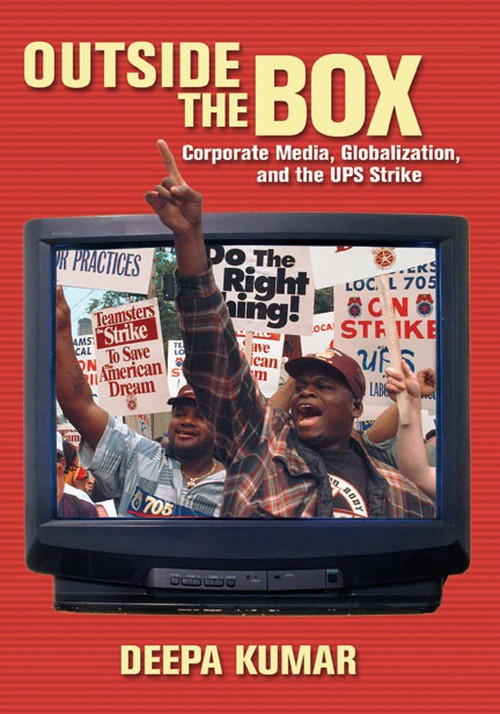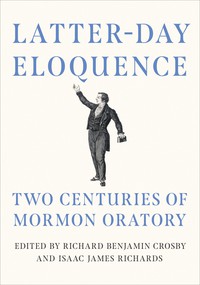
Outside the Box
Cloth: 04/16/2007
About the Book
Outside the Box presents an in-depth study of media representation of the 1997 United Parcel Service (UPS) workers' strike. Deepa Kumar delineates the history of the strike, how it coincided with the rise of globalization, and how the mainstream media were pressured to incorporate pro-labor arguments that challenged the dominant logic of neoliberalism. Drawing on a textual analysis of over five hundred news reports, Kumar argues that media reform is more complicated than is suggested by liberal media theorists. She makes a case for a dialectical understanding, developing a "dominance/resistance model" for media analysis.About the Author
Deepa Kumar is an associate professor of journalism and media studies at Rutgers University. She is the author of Islamophobia and the Politics of Empire.Reviews
"Not only a significant contribution to the field but also a practical guide to how organized labor can intervene and enact social change in a still severely compromised public arena."--Journal of Communication"Adroitly reveals how strikers pressured an unwilling media to represent the interest of workers. . . . [Kumar's] conceptualization of the strengths and weaknesses of globalization is compelling. . . . Recommended."--Choice
"Kumar [has] produced a case study of lasting value."--New Labor Forum
"Outside the Box contains many lessons for activists in both the labor movement and beyond. . . . Worthwhile reading."--Socialist Worker
"[An] excellent book about the 1997 strike against the United Parcel Service."--International Socialist Review
Blurbs
"An outstanding book. All media students, and the rest of us, should read it."--John Pilger, journalist and filmmaker, author of Tell Me No Lies: Investigative Journalism and Its Triumphs
"A brilliant analysis of the UPS strike, its treatment in the media, and how the Teamsters were able to win public support. It offers valuable lessons, and is a must read for everyone in the labor movement."--Ron Carey, former president of the International Brotherhood of Teamsters
"Drawing on excellent research, this book demonstrates how American workers were able to make a major corporation back down. It documents a turning point in U.S. labor history and breaks new ground in communication research on labor."--Vincent Mosco, Canada Research Chair in Communication and Society at Queen's University, Canada
“Inspiring and insightful, Outside the Box tells the story of the Teamsters’ successful strike and media campaign against UPS’s draconian policies. By contextualizing this struggle, Deepa Kumar illuminates how corporations use globalization to reap greater profits at the expense of working people everywhere. In her elegant prose and penetrating analysis, Kumar offers practical suggestions for turning the neoliberal tide.”--Eileen R. Meehan, Lemuel Heidel Brown Chair in Media and Political Economy, Manship School of Mass Communications, Louisiana State University
"This is a valuable book because serious work on the representation of organized labor is rare in media studies. More valuable, however, is that it shows how media coverage changed in the course of the strike. The implications of the fact that collective working-class struggle can change media representations are very far-reaching, challenging not only uncritical pro-business views of the media but also the more individualized notions of resistance based on deviant consumption of dominant texts. This book has important insights and lessons for all those interested in understanding the role of the media in contemporary capitalism, and for those who are interested in changing that role."--Colin Sparks, director of the Communication and Media Research Institute, University of Westminster, and author of Media and Globalization
"Outside the Box is one of the most in-depth and well-researched studies of media representation of a labor struggle that I have read. Kumar has an exceptional talent for describing complex economic and theoretical notions in a clear and interesting style, and her incorporation of concrete examples is especially useful in analyzing social relations between capital and labor. Finally, her emphasis on resistance provides an important alternative to analyses that too often stress domination alone."--Douglas Kellner, George F. Kneller Chair in Education and Philosophy at the University of California, Los Angeles
"Deepa Kumar has provided us with a compelling account of the way the U.S. media cover globalization and labor issues. She combines a clear understanding of the structural preferences of the U.S. media with a nuanced appreciation of the possibility for change. This is a smart, highly readable intervention and makes essential reading for those interested in promoting better media coverage within the constraints of a corporate system."--Justin Lewis, professor of communication, Cardiff University






